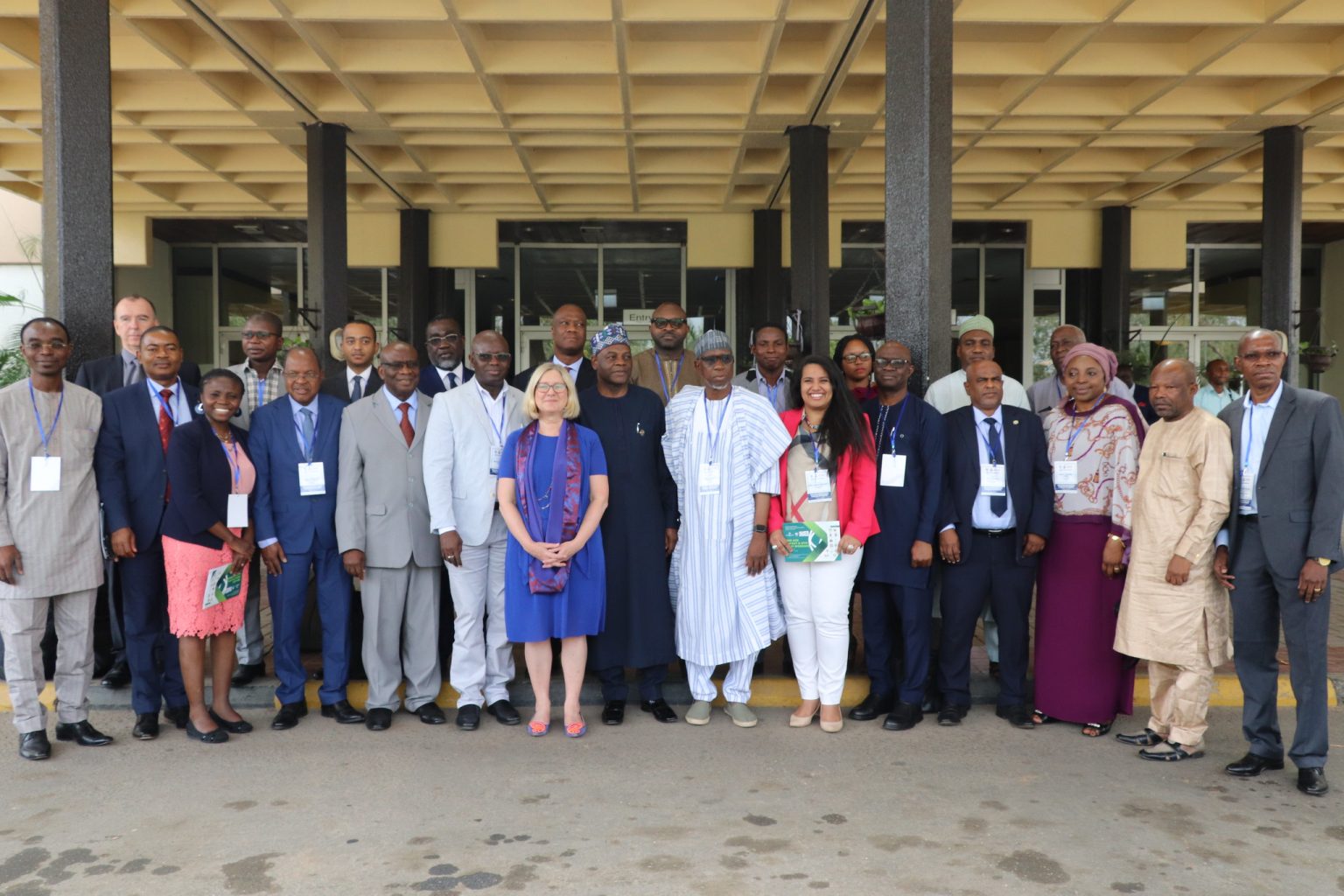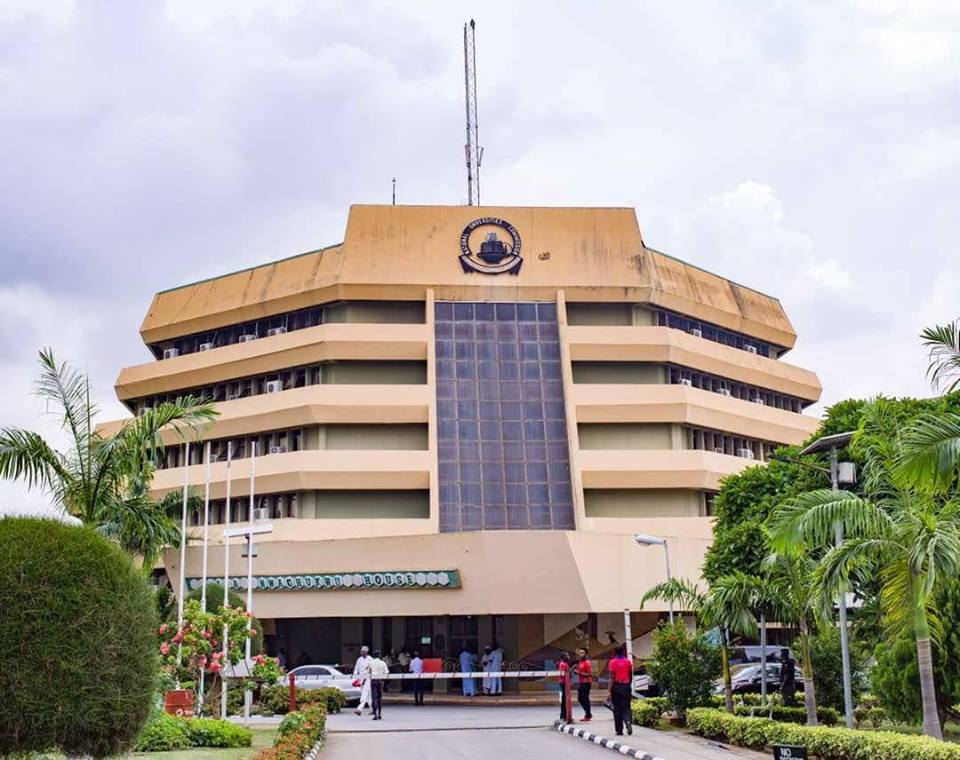About ACE 1

Background
The ACE I project was launched in 2013 by the governments of Benin, Burkina Faso, Cameroon, The Gambia, Ghana, Nigeria, Senegal and Togo, with support from the World Bank.
The objective of the ACE I Project is to promote regional specialization among participating universities within areas that address particular regional development challenges and strengthen the capacities of these universities to deliver high quality training and applied research.
In 2015, Cote d’Ivoire joined the ACE I project, bringing the number of participating countries to nine. There are a total of twenty-two ACEs in the region.
Project Development Objectives
Higher Order Objectives
Component 1
Component (1) aims to strengthen the capacity of nineteen
(19) competitively selected institutions to strengthen or establish
ACEs.
These ACEs will deliver regional in-demand quality training and
applied research in partnerships with regional academic institutions,
international academic institutions, relevant employers and industry.
Benin, Burkina Faso, Cameroon, Ghana, Nigeria, Senegal and Togo are
under Component (1).
This component will strengthen nineteen (19)
Centers of Excellence in selected higher education institutions to
produce highly skilled graduates and applied research to help address
specific regional development challenges.
Centers of Excellence draw on
specialized departments and faculty in higher education institutions
(universities) in West and Central African countries in disciplines
related to STEM, Agriculture and Health. The number of ACEs per country
and sector supported and strengthened under this component is shown in
| S.T.E.M. | Agriculture | Health | |
|---|---|---|---|
| Benin | ACE in Applied Mathematics | ||
| Burkina Faso | ACE in Environment and Water Engineering with agro-business elements | ||
| Cameroon | ACE in Application of Information Technology | ||
| Ghana | ACE in Water and Environmental Engineering and Sciences | ACE in Crop Science and Plant Breeders | ACE in Cell Biology of Infectious Diseases |
| Nigeria* | ACE in Material Science | ACE in Agriculture and Environment | ACE in Neglected Tropical Diseases |
| ACE on Neglected Tropical Diseases and Forensic Biotechnology | ACE in Dry-land Agriculture | ACE in Phytomedicine Science | |
| ACE in Phytomedicine Research and Development | ACE in Food Technology | ACE in Infectious Diseases | |
| ACE in Productive Health and Innovation | ACE in Reproductive Health | ||
| Senegal | ACE in Mathematics and ICT | ACE in Maternal and Child Health | |
| Togo | ACE in Poultry Sciences | ||
| Total Number | 8 | 6 |
The Selection Process
The beneficiary institutions were selected through an open, rigorous, transparent and merit-based selection process. The selection process entailed the following main steps:
- Call for proposals to institutions;
- Submission of Center of Excellence proposals through their respective governments
to the regional facilitation unit (fifty two (52) proposals were submitted); - A
systematic and detailed evaluation of proposals by thirty five (35)
independent African and international experts according to pre-defined
criteria.
The evaluation consisted of three different and discrete sets of assessments. The universities that
submitted the 31 proposals that met the required level of education and academic quality, as assessed
by three independent academic experts, were further assessed through an on-site leadership evaluation
and a fiduciary assessment. Each shortlisted proposal was reviewed and scored by at least seven independent
evaluators; - (iv) As a last step, fifteen proposals were selected by first selecting the highest evaluated proposal from each country that submitted proposals, and, second, the highest evaluated proposals within each of the three disciplines (up to a maximum of four proposals) were selected for each discipline, and finally, out of the remaining proposals, the three highest evaluated proposals were irrespective of country and discipline were selected. The selection mechanism sought to ensure a reasonably equitable distribution across countries, language groups and disciplines.
Selected institutions will implement their own Center of Excellence proposal aiming to help address a specific regional development challenge through preparation of professionals (education), applied research and associated outreach activities with partners. Each selected institution will sign a performance and funding contract with their government which states the following: At least fifteen percent of the funding must be invested in the partnerships, and at least ten percent must be invested in partnerships activities with non-national African partners. A partnership agreement between the ACEs and their respective partners will detail the work plan, budgets and outcomes of this arrangement. Further, civil works will be limited to twenty-five percent of the grant. This agreement will include the government’s planned commitments for continued funding of institutional staff as part of the funding and performance agreement. Within these parameters, institutions will have autonomy to implement their own institutional specific proposal that encompasses the following six elements: :
- Enhance capacity to deliver regional high quality training to address the development challenge, including, inter alia, update curricula of existing programs or create new education programs to meet the development challenge; meet international benchmarks for quality education (e.g. international accreditation); deliver short-term courses for professionals; attract a regional student body; training of faculty to introduce new approaches to teaching and learning; enhance work-place learning such as internships; encourage entrepreneurship among students, upgrading of qualifications of faculty; improve learning resources, including lab equipment, and minor rehabilitation or extension of existing facilities.
- Enhance capacity to deliver applied research to address the regional development challenge, including, inter alia, faculty development and staff training, minor rehabilitation works or extension of existing facilities, scholarships and post-doctoral studies, networking activities with national and international partners, hosting and participating in conferences, research equipment and materials and laboratory refurbishment, research dissemination, knowledge and technology transfer, and patenting or other intellectual property rights-related costs
- Build and use industry/sector partnerships to enhance impact of the ACE on development and increase relevance of said centers education and research, including, inter alia, industry advisory boards, internships, industry lectures, training of trainers for sector training institutions (such as polytechnics, nursing, teacher or agricultural colleges), joint research, training, and other activities to communicate, interact and reach out to the civil society, the private sector, and grassroots communities
- Build and strengthen regional and international academic partnerships to raise quality of education, raise the capacity of network partners and to raise the ACE’s capacity, including, inter alia, joint delivery of education programs, professional courses for regional faculty, faculty exchanges/visiting faculty, joint research, joint conferences, sharing of specialized equipment and library resources
- Enhance governance and management of the ACE and the participating university to improve monitoring and evaluation, including monitoring of labor market outcomes of graduates, administration, fiduciary management (including financial management (FM), procurement, oversight and capacity), transparency, ability to generate resources, and project implementation.
The selected Africa Centres of Excellence in Nigeria are as shown in Table 2 below:
| 1 | Redeemers University Ede Osun State | Africa Center of Excellence for Genomics of Infectious Diseases ACEGID |
|---|---|---|
| 2 | African University of Science & Technology Abuja | PAN African Materials Institute PAMI |
| 3 | Federal University of Agriculture Abeokuta | Center for Agricultural Development & Sustainable Environment CEADESE |
| 4 | Ahmadu Bello University Zaria | Center of Excellence on Neglected Tropical Diseases and Forensic Biotechnology ACENTDFB |
| 5 | University of Jos | Phytomedicine Research & Development ACEPRD |
| 6 | University of Benin | Center for Excellence in Reproductive Health and Innovation CERHI |
| 7 | University of Port-Harcourt | ACE Center for Oil Field Chemicals (CEFOR) |
| 8 | Obafemi Awolowo University Ile Ife | OAU Knowledge Park OAK-Park |
| 9 | Bayero University Kano | African Centre of Excellence ACE in Dryland Agriculture CDA |
| 10 | Benue State University Makurdi | Centre for Food Technology and Research (CEFTER) |
Component 2
Enhancing Regional Capacity, Evaluation and Collaboration Component (2) consists of regional activities to build capacity, support project implementation, monitor and evaluate, and develop regional policies. Furthermore, this component will boost regional collaboration by supporting. The Gambia is under Component (2). The Gambia in strengthening its higher education institutions through education services purchased from the ACEs strengthened under Component (1).
Component 2.1: Enhancing Regional Capacity and Evaluation through the Regional Facilitation Unit at the Association
of African Universities (AAU) in Accra, Ghana. This sub-component will be financed through a Regional IDA Grant to the
Association
of African Universities (AAU). The AAU will support: (i) capacity
building, knowledge sharing and coordination between
the ACEs, for example through joint lessons learning as well as implementation of a communications plan; (ii) undertake regional
monitoring
and evaluation (M&E) activities to improve and assess the
performance of the selected institutions. This includes tracer
studies,
technical audits, collection of academic data, and topic-wise
evaluations; (iii) technical assistance to regional bodies,
including
ECOWAS and WAEMU to support regional policy making on regional higher
education science and technology agenda; and (iv)
activities required for regional project facilitation and steering.
Component 2.2: Project Facilitation in Nigeria. This sub-component will finance project implementation support and
facilitation
for the National Universities Commission in Nigeria. This includes
national facilitation, training, and supervision in fiduciary
aspects as well as national M&E and minor Technical Assistance (TA).
Component 2.3: Enhancing Demand-driven Regional Education Services in The Gambia. This sub-component is financed through a
Regional
IDA Credit. It seeks to increase regional use and benefit from the
strengthened ACEs under Component 1 in a demand-driven manner. The
sub-
component will finance provision of higher education services to The
Gambia’s students, faculty and civil servants. The education services
could
include short-term specialized training to government officials,
short-term merit-based scholarships to young talent, faculty development
for
non-ACE institutions, visiting faculty, and curriculum development. The
Gambia will contract the ACEs to deliver the demanded services.

Major Accomplishments
Since its launch in 2014,The African Centres of Excellence has undoubtedly proven productive in addressing challenges in the various thematic disciplines.
Latest M&E report shows that about 8,100 students have been enrolled under the ACE Project. Out of this number, 25% are female students and 25% registered as Regional students. Moreover, there are 1600 PhD students, 6,500 Masters students and 16,000 short courses students.
Also, over 87 partnerships have been made with other institutions and industries, USD 8.9 million external revenue generated, 1,005 Research publications and 1,820 faculty members and students have benefited from graduate internship Programmes.


